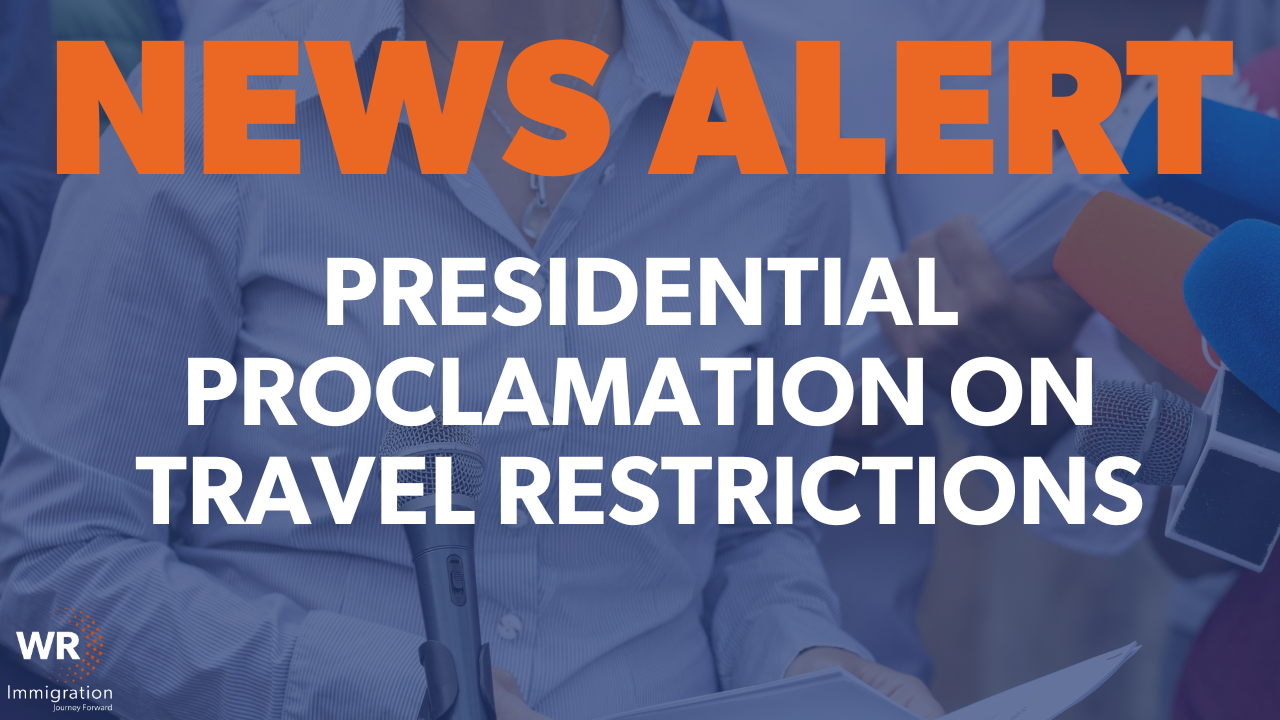For an in-depth review of these travel restrictions, WR Immigration is hosting an urgent webinar to provide critical insights into the policy’s scope and its immediate and long-term effects on affected communities, legal rights, and immigration procedures. Register here for more information.
The President has issued a new Proclamation instituting targeted travel restrictions to safeguard U.S. national security and public safety. These measures are designed to enforce immigration laws, encourage international cooperation in security and identity verification, and prevent the entry of individuals from countries deemed high-risk due to inadequate vetting capabilities or other compliance concerns. The Proclamation builds upon the prior travel ban upheld by the U.S. Supreme Court and reflects updated global security assessments.
Countries Subject to Full Suspension of Entry
The following countries are subject to a full suspension of entry under the Proclamation:
- Afghanistan
- Burma (Myanmar)
- Chad
- Republic of the Congo
- Equatorial Guinea
- Eritrea
- Haiti
- Iran
- Libya
- Somalia
- Sudan
- Yemen
Countries Subject to Partial Suspension of Entry (B-1, B-2, F, M, and J Visas)
The following countries are subject to partial suspension of entry, specifically affecting immigrant and nonimmigrant visa categories such as business, tourism, student, and exchange visitor visas:
- Burundi
- Cuba
- Laos
- Sierra Leone
- Togo
- Turkmenistan
- Venezuela
Effective Date: The new U.S. travel ban will take effect on June 9, 2025, at 12:01 am EDT.
Impact: The travel ban poses immediate challenges for global mobility and in-house immigration teams, impacting talent pipelines, cross-border assignments, and visa planning. Teams should quickly assess affected populations, adjust recruitment and relocation strategies, and communicate clearly with impacted employees to ensure compliance and minimize disruption.


